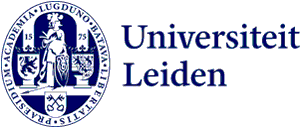
‘Give farmers more freedom in how they reduce nitrogen’
In his inaugural lecture Professor of Environmental Sustainability Jan Willem Erisman calls for local solutions that give people more freedom in how they meet environmental, nature and climate goals. This would allow farmers to come up with their own solutions to the nitrogen problem. The idea ties in with the coalition agreement, although Erisman thinks the plans this outlines are not concrete enough.
The coalition agreement (in Dutch) states that the government wants to focus on the diverse regions in the Netherlands to improve the health of the environment, something that Erisman and other researchers have been calling for for longer. ‘If you translate climate and nitrogen goals into regions, people can set to work there. Then you ensure that farmers, for example, can make their own plans with stakeholders. And you can make effective use of money, linked to what they see as development. However, you must keep sanctions up your sleeve for if concrete solutions are not found that will enable you to meet the targets.’
How the government is going to flesh out this regional approach is not clear to Erisman. ‘The ministries think too much in terms of sectors and short-term solutions to specific problems. But if you focus on long-time regional goals, you gain a completely different focus, approach and implementation.’
Schiermonnikoog
Erisman uses the example of the island of Schiermonnikoog to show how to give shape to the regional approach. In 2014 the province there ordered seven diary famers to reduce their nitrogen emissions by 20%. The farmers were allowed to develop their own plans to achieve this. If they didn’t succeed, however, the province would buy out one of the companies and convert 30 hectares of land into a nature reserve. This buy-out would cost an estimated 1.9m euros.
As a solution the farmers started making their own cheese under the brand name Van Schier. They also got rid of 30% of their cattle, and received compensation for this. The process wasn’t without the odd hitch, but the final result is that the farmers have been able to continue farming, have a future and have reduced twice as much nitrogen as the province wanted them to. And all for the same amount of money as had been allocated to the buy-out.
Independent
Erisman helped the dairy farmers find the solution. ‘What I noticed on Schiermonnikoog is that as an independent person you are better placed to help. When I arrived on the island, I told the farmers: “I don’t care what your solution is. I don’t have any skin in the game. I have expertise and can help, but it’s not my problem.” I’ve also repeatedly called for a kind of Delta Programme Commissioner for the countryside. They would be independent of political interests and have a mandate and budget for achieving the long-term transition in agriculture.’
Liveable Planet programme
The example of Schiermonnikoog shows that if, within certain constraints, you give people the freedom to work on a long-term vision, they can come up with their own plans on how to implement this. Erisman and his colleagues also use this approach in the Liveable Planet programme, of which he is the coordinator. This approach also ties in with the strong bottom-up culture at Leiden University.
The Liveable Planet programme brings together researchers in the natural sciences, humanities and social sciences from throughout the University to work on sustainability issues and incorporate these in the degree programmes. ‘Lots of people are working on sustainability in Leiden, but you have to bring them together. You need a multidisciplinary approach. One aspect of this is that, like with local communities, you need a common goal that everyone commits to. I’m a great advocate of giving people the freedom, within certain constraints, to develop, innovate and excel. It has big advantages because people work from their own strengths on something for which they are intrinsically motivated.’
Text: Dagmar Aarts
